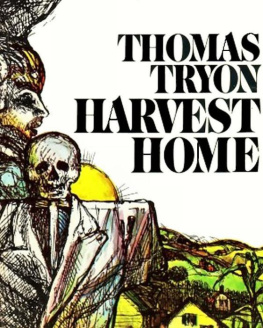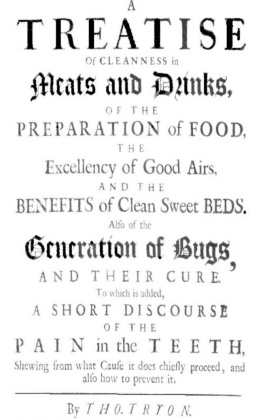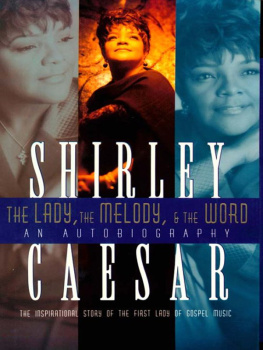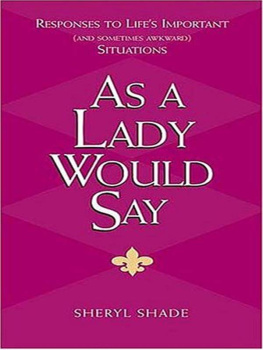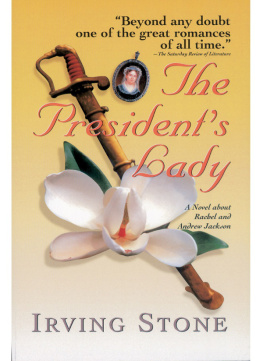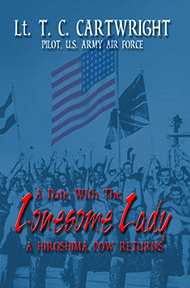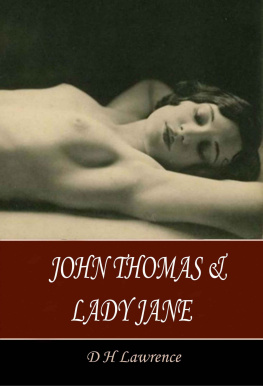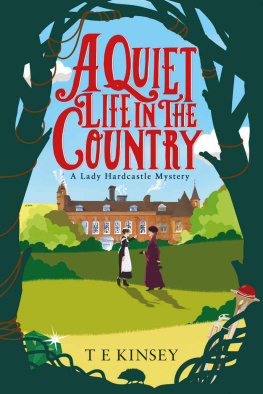Thomas Tryon - Lady
Here you can read online Thomas Tryon - Lady full text of the book (entire story) in english for free. Download pdf and epub, get meaning, cover and reviews about this ebook. year: 1974, publisher: Knopf, genre: Non-fiction. Description of the work, (preface) as well as reviews are available. Best literature library LitArk.com created for fans of good reading and offers a wide selection of genres:
Romance novel
Science fiction
Adventure
Detective
Science
History
Home and family
Prose
Art
Politics
Computer
Non-fiction
Religion
Business
Children
Humor
Choose a favorite category and find really read worthwhile books. Enjoy immersion in the world of imagination, feel the emotions of the characters or learn something new for yourself, make an fascinating discovery.

- Book:Lady
- Author:
- Publisher:Knopf
- Genre:
- Year:1974
- Rating:3 / 5
- Favourites:Add to favourites
- Your mark:
- 60
- 1
- 2
- 3
- 4
- 5
Lady: summary, description and annotation
We offer to read an annotation, description, summary or preface (depends on what the author of the book "Lady" wrote himself). If you haven't found the necessary information about the book — write in the comments, we will try to find it.
Lady — read online for free the complete book (whole text) full work
Below is the text of the book, divided by pages. System saving the place of the last page read, allows you to conveniently read the book "Lady" online for free, without having to search again every time where you left off. Put a bookmark, and you can go to the page where you finished reading at any time.
Font size:
Interval:
Bookmark:
All roads may lead to Rome; they do not lead, however, to Pequot Landing. But I have lived to discover that as a road can carry one away, so again it can carry one back. Interstate 91 has brought me back so many times since I left. It cuts across the edge of town between the Great South Meadow and the village cemetery. Coming off the parkway, you can see the cemetery markers below the First Church steeple. When I die, my ashes will be scattered, but if truth were known I would rather be there, in that churchyard, by that church, in the shadow of that steeple. I like the notion of being buried near to where Lady Harleigh lies. We would be old friends yet, sharing that close green Connecticut acreage.
I find it easier going back now, though for a time I did not, and I remember my first visit after having been away for more than ten years. We came back, Teresa and I, to a family reunion, in October. We had been married when I graduated from college. We lived for a time in New York, where our oldest boy was born. We named him Lewis, after my brother. Our two daughters, Addie and Susan, were born in California. Addie, naturally, had been christened Adelaide. The occasion for the reunion was Papa Marini's eightieth birthday, and we brought the children back for it. I had mixed feelings about returning. Ma had died, Nonnie was married and living in Michigan, Kerney was studying languages in Europe, Harry worked for an oil refinery in New Orleans, Nancy was gone. The only one of us left was Ag. She had married Rabbit Hornaday, who ran a thriving practice as a veterinarian. Ag took care of the office for him.
Making the curve at River Road, I slowed the car and looked in through the cemetery gates. I could see Edward and Lady Harleigh's matching headstones, and I felt a strange sensation. Perhaps it was nothing more than just feeling that I was a stranger in my own hometown -- perhaps it was more. But as we drove down Main Street, that glimpse into the graveyard made me feel alien, and everything seemed different to me. The Spragues had lived in that house -- they were dead; who lived there now? I had no idea. Keller's drugstore was gone, and the Pilgrim was a supermarket. The Noble Patriot (its black proprietor, Andy Cleves -- dead also?) was now a cute Colonial-type beauty parlor. The Academy Hall was now a museum. There was no more Academy Parliament, nor indeed any Town Meeting. Teresa's brother, Johnny, was the mayor of Pequot Landing, which was run by a town manager. The library was larger and elsewhere, likewise the post office. There was a modern steel and glass structure in place of that Gothic pile, the Chester Welles Grammar School. Miss Grimes was dead, Miss Bessie worked for an advertising firm in New York. Everywhere I sensed the cunning hand of Time at work. It was changed, all changed.
Still the same trees billowed (but haven't they grown, Teresa said. I, too, remembered them as much smaller), and still the houses along Broad Street (but don't they seem little? Teresa said. I, too, thought they had shrunk) presented their handsome fronts to us as we passed, boasting fresh coats of paint with carefully considered colors on shutters and doorways, where their owners had hung raffia baskets filled with straw flowers of seasonal colors, where they had polished their street numbers, manicured their lawns, and shined their windows. Yet who were they, these owners of the houses? No one knew. Strange faces, strange children, strange cars. Strange, all strange.
Before pulling in at the Marini farm I drove down the road so the kids could see where "Daddy used to live." Who lived there now? The house had twice been bought and sold. The Sparrows were dead, Gert Flagler was dead, Dr. Brainard had moved to Vermont. But Miss Berry, as we had heard, was still going. There was no sign of her as we passed; we made the turn at the old trolley stop, and then were in front of Lady's. Her estate had been divided between Elthea Griffin and me, with generous bequests to various town funds. The house, also left to me, I had sold to another of Teresa's brothers, Dr. Robert Marini, a dentist.
There was a bike on the lawn, other signs of playthings. The birch trees in front never looked so fine as the elms. Different, all different.
And the Great Elm was gone. Like Lady, it had died piecemeal, branch by branch, haggard, lopsided, grotesque, pathetic. It had been felled at last by the Dutch blight. I remembered a time when I had thought that, like life, it would go on forever. I told the kids how we used to stand, three, four, five of us, trying to measure our own growth against it, to girdle with our outstretched arms and clasped hands its immense girth, feeling the scrape of bark against our cheeks as we leaned against it. "Gee, Dad, that must have been some tree," they said -- but after all it was only a tree.
Before dinner I took the kids out on the Cove. One of Teresa's cousins had a motor launch and I suggested going downriver. I shouldn't have. Hermitage Island was gone. It simply wasn't there at all, and from my reckoning the river had taken a different course entirely where it used to flow by both sides of the island. It was as if it had never been.
Gone, all gone.
Back at the Marini farm, things were different, too. Most of the acreage had been sold off for building lots; what remained was unfilled. Papa Marini was on easy street. Big, blustering Mama seemed smaller and quieter, though she cooked as much as ever. There were aunts and uncles and cousins and nephews and nieces and sisters and brothers, and I had trouble making out the faces I should have remembered. Ag came, and Rabbit, and it was good to see them. Rabbit got along very well with prosthetic devices, and Ag proudly showed off their boy and girl. Rabbit said that after we ate, he would take all the children to see the fat badger he'd recently gotten.
After dinner, on the excuse of going to the store for cigarettes, I went around the Green again, this time trying to scent out the strangenesses and differences. I went down to our old house and had another look. Poor old house, it was more ramshackle than ever. There appeared to be nobody home, so I walked down the drive, to see how Pa's fruit trees had grown. When I came around the side of the garage, I stopped and stared. The trees, four cherry, four pear, four quince, four plum, had been chopped down. The stumps remained, sticking up through the unmowed grass. I couldn't believe it. Who would cut down those trees, for what reason? I felt heartsick.
Gone. Changed.
Everything but -
Out on the street again, I saw Miss Berry sitting in her sun parlor. They said she was in her nineties. She saw me, adjusted her spectacles when I waved, but did not recognize me until I had rung her bell and she opened the door. I went in for a visit, and as the door closed behind me and she took me into the sun porch, the years seemed to gather me up and draw me backward. At Miss Berry's, nothing had changed. It was like a small time capsule of my childhood. Here were the same old pieces of furniture, the same rugs, the descendants of dogs I had known, even a canary in the cage -- not the same canary but a canary all the same -- even, as she herself pointed out, the same sansevieria in the blue pot.
Even Miss Berry herself seemed the same, her manner still brisk, her mind agile. She was humorous, kindly, interested. As we talked, I thought of all the years she had inhabited that sun parlor, that little piece of space leased for her lifetime, as if she had long ago staked it out for her old age.
We spoke of Gert Flagler, who had died during Truman's term, which Miss Berry regarded as a mercy; Gert had not seen the Republicans come to power again. We spoke of Eamon Harmon, who had once ridden a horse as Jared Ingersoll in the pageant, and who now rode a chair lift up and down stairs. Both he and his wife, Eva, had given up drinking and smoking. Thin Eva was now plump. We spoke of Colonel Blatchley, who had sold his house and was living in a retirement apartment down in Two Stone. We spoke of Mr. Keller, the druggist, who was dead, but whose son ran the business in a new store on the highway. We spoke of Lew, dead for twelve years, of Blue Ferguson, dead even longer, and of Elthea, who unfailingly sent a Christmas card each year, and at last we spoke of Lady. It was like leaving the best for last. The brick house, Miss Berry said, ' was very well maintained by Robert Marini. His wife, a pretty Polish girl, kept the gardens nicely and, having found the empty pedestal at the end of the brick walk, had replaced the gazing-globe with another one. Robert was amused by and friendly with the Old Guard, made his own wine, kept large dogs, and found the Great South Meadow good for hunting. Their four children were as bright and incorrigible as ever we had been. Of course, they hadn't
Font size:
Interval:
Bookmark:
Similar books «Lady»
Look at similar books to Lady. We have selected literature similar in name and meaning in the hope of providing readers with more options to find new, interesting, not yet read works.
Discussion, reviews of the book Lady and just readers' own opinions. Leave your comments, write what you think about the work, its meaning or the main characters. Specify what exactly you liked and what you didn't like, and why you think so.


